Nigeria
Nigerian and European Union forces conduct joint anti-piracy drills at the Western Naval Command in Lagos, to demonstrate their capabilities in the Gulf of Guinea.
Piracy in the Gulf of Guinea -- home to Sub-Saharan Africa's two main oil producers, Nigeria and Angola -- has seriously disrupted international shipping routes and cost the global economy billions of dollars.
The idea of strengthening cooperation with Nigeria became necessary, in order to ensure coordinated monitoring of the Gulf of Guinea by the EU and its member states.
The visiting European Union countries which included Italy, Spain, Greece and France are also expected to address threats such as illegal fishing, trafficking and transnational crimes in the Gulf of Guinea.
The Gulf of Guinea itself is a vast and diverse region stretching from Senegal to Angola covering approximately 2,874nm of coastline. It is an important shipping zone transporting oil and gas as well as goods to and from Africa and the rest of the world.
Averagely, about 1500 tankers, cargo ships and fishing vessels navigates its waters.
Nigeria has continued to record successes in the anti-piracy war as activities of pirates in the Gulf of Guinea have reached an all-time low in more than a decade.
About a month ago, Nigeria had just achieved a mileage, in it’s anti-piracy drive as the International Maritime Bureau (IMB) delisted the country from it’s piracy list.




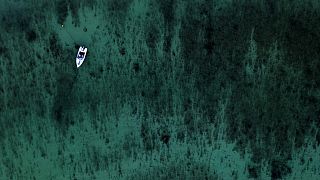
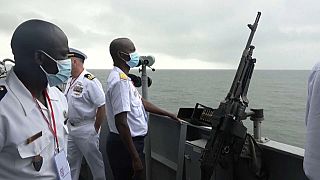
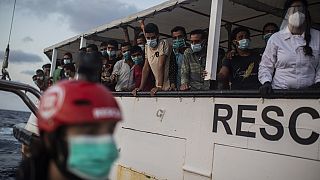

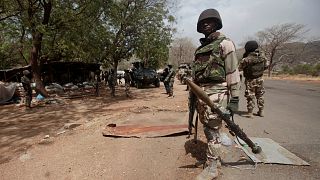
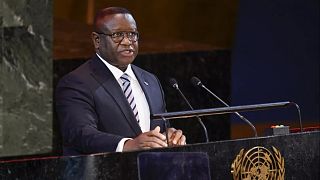



11:15
AI drones lead breakthrough against malaria in Africa [Business Africa]
Go to video
Evacuations begin: African citizens caught in Israel-Iran crossfire
02:08
Gunman attack in north-central Nigeria: death toll climbs to 150
01:14
Tinubu pardons the Ogoni Nine activists, 30 years after their execution
02:18
Nigerian animation shines at Annecy Film Festival
48:03
Half a century later, Is ECOWAS falling apart? [Africanews Debates]